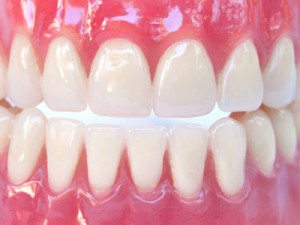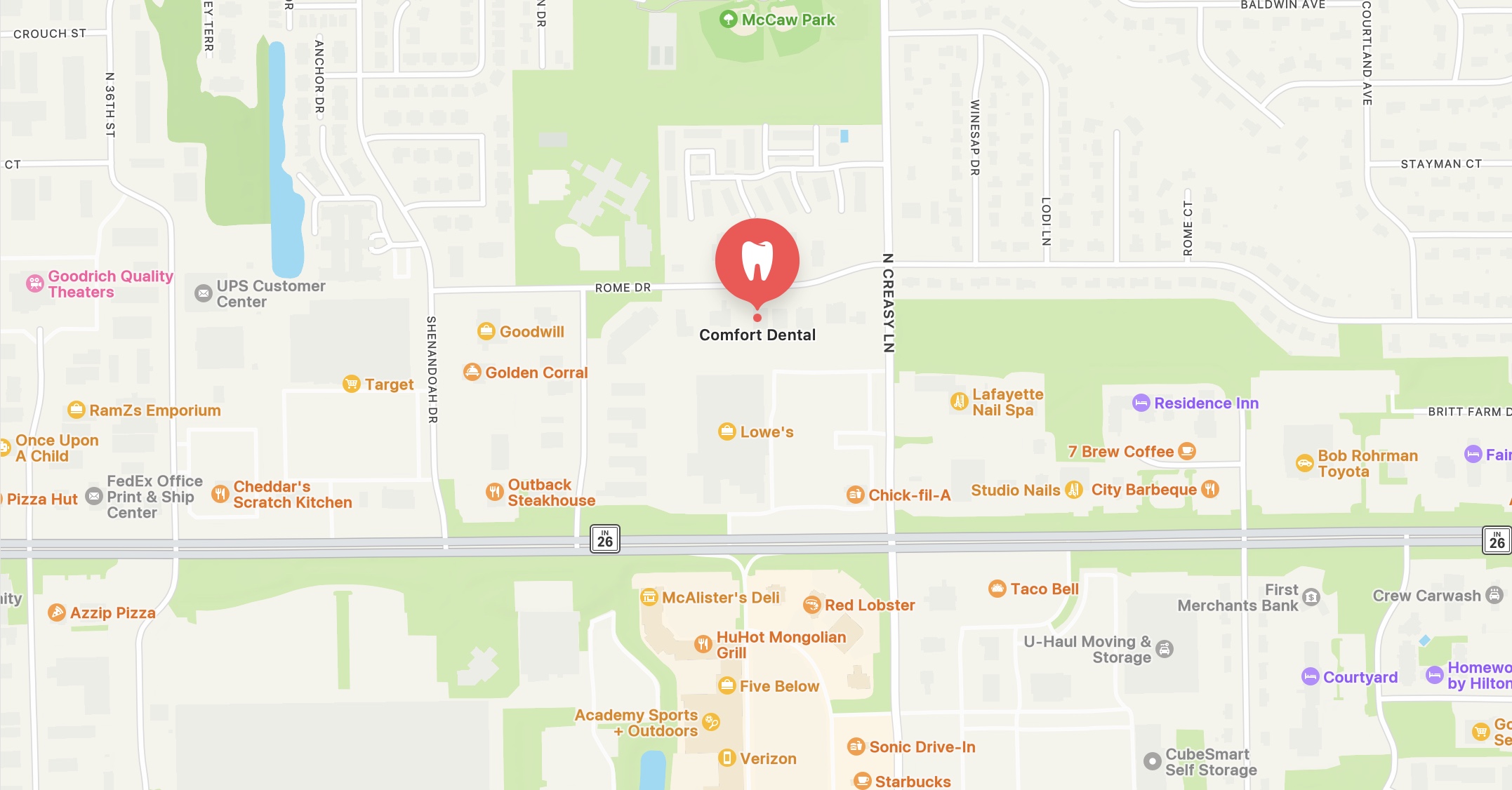 IT’S A NEW DAY when it comes to denture technology, materials and fit.
IT’S A NEW DAY when it comes to denture technology, materials and fit.
If your parents or grandparents had dentures, chances are they had a much different experience than yours could be.
DENTURES, OR PARTIAL DENTURES, ARE NOT ONLY FOR “OLDER PEOPLE”.
Although Comfort Dental does everything possible to save existing teeth, sometimes dentures are the best alternative—regardless of your age.
You may have full dentures recommended to you if you’ve lost—or are in danger of losing—all of your teeth.
When you lose all of your teeth, facial muscles can sag, making you look older. Dentures can help fill out the appearance of your face and profile. They can be made to closely resemble your natural teeth so that your appearance does not change much. Dentures may even improve the look of your smile.
If you only have some missing teeth with otherwise healthy teeth and gums, then partial dentures may be recommended. That way, we can utilize those healthy teeth for better support.
DENTURES CAN MAKE A HUGE DIFFERENCE IN EVERYDAY LIFE.
 Dentures can help you eat normally and speak more clearly. One of the great things about today’s modern denture is that they can look and feel more like natural teeth, and are made of the finest, modern dental materials.
Dentures can help you eat normally and speak more clearly. One of the great things about today’s modern denture is that they can look and feel more like natural teeth, and are made of the finest, modern dental materials.
Dr. Brucken and Dr. Stubbs spend an equal amount of time determining the proper fit and function and making them look natural. Each tooth is individually designed, positioned, and color matched for a “realistic” look that’s nearly always mistaken for one’s natural teeth.
Here at Comfort Dental, we work with the very finest dental laboratories to fashion your dentures—featuring premium, low-staining, long-lasting teeth with a strong, high-impact acrylic base. Dr. Brucken and Dr. Stubbs recognize a key to success with dentures is fit—and if they hurt, you won’t want wear them. An improper fit can also lead to other oral health problems.
 Types of Dentures:
Types of Dentures:
- Conventional. This full removable denture is made and placed in your mouth after the remaining teeth are removed and tissues have healed, which may take a few months.
- Immediate. This removable denture is inserted on the same day that the remaining teeth are removed. Dr. Brucken or Dr. Stubbs take measurements and make models of your jaw during a preliminary visit. You don’t have to be without teeth during the healing period, but will have the denture adjusted or relined after your jaw has healed.
- Overdenture. Sometimes teeth can be saved to preserve your jawbone and provide stability and support for the denture. An overdenture fits over a small number of remaining natural teeth. Implants can also serve the same stability function. Many patients appreciate the stability that natural teeth or implants provide for the denture.
- Partial Denture. Removable partial dentures usually consist of replacement teeth attached to pink or gum-colored plastic bases, which are connected by metal framework. Removable partial dentures attach to your natural teeth for stability with metal clasps or devices called precision attachments.
.
Dentures need daily care just like natural teeth and should be brushed daily to remove food particles and plaque. Brushing also can help keep the teeth from staining.
- Rinse your dentures before brushing to remove any loose food or debris.
- Use a soft bristle toothbrush and a non-abrasive cleanser to gently brush all the surfaces of the dentures so they don’t get scratched.
- When brushing, clean your mouth thoroughly—including your gums, cheeks, roof of your mouth and tongue to remove any plaque. This can help reduce the risk of oral irritation and bad breath.
- When you’re not wearing your dentures, put them in a safe place covered in water to keep them from warping.
.
If you have questions about dentures or whether getting a full or partial denture would be right for you – please let us know, we are here to help!



